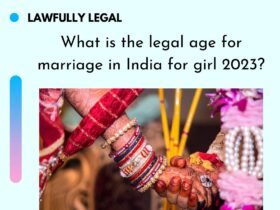
As of 2023, the legal age of marriage in India is 18 years for females and males. The legal age of marriage was raised from 18 to 21 for males in the recently passed Prohibition of Child Marriage (Amendment) Act, 2022.
The act was passed by the Indian parliament in December 2021 and received presidential assent on 11th January 2022. Prior to the amendment, the legal age of marriage for females was 18 years and for males, it was 21 years. However, the amendment has now set the legal age of marriage for both genders at 18 years, aligning it with the age of majority and other laws in India. It is important to note that child marriage, which refers to the marriage of a person below the age of 18, is illegal in India.
Child marriage is considered a violation of human rights and has been linked to a range of negative outcomes, including poor health, lower levels of education, and reduced economic opportunities, especially for girls. The government of India has taken several steps to prevent and eradicate child marriage, including awareness campaigns, legal reforms, and social welfare programs.
Despite the legal prohibition of child marriage in India, it remains a prevalent practice in many parts of the country, particularly in rural areas and among disadvantaged communities. According to UNICEF, India has the highest number of child brides in the world, with an estimated 27% of girls getting married before the age of 18.
Child marriage is driven by a range of factors, including poverty, social and cultural norms, lack of access to education and healthcare, and gender inequality. The practice is often justified on the basis of tradition and the belief that marriage provides security and protection for girls.
However, child marriage has serious consequences for the health, well-being, and development of girls. Child brides are more likely to drop out of school, suffer from domestic violence, experience poor health outcomes, and have limited opportunities for personal growth and economic empowerment.
To address the issue of child marriage in India, the government has implemented a range of measures, including legal reforms, awareness campaigns, and social welfare programs. These initiatives aim to raise awareness about the harms of child marriage, empower girls with education and life skills, and provide support and protection to vulnerable girls and their families.
Despite these efforts, the practice of child marriage persists in India, and there is a need for continued action and collaboration to end this harmful practice and promote the rights and well-being of girls.










Leave a Reply
View Comments